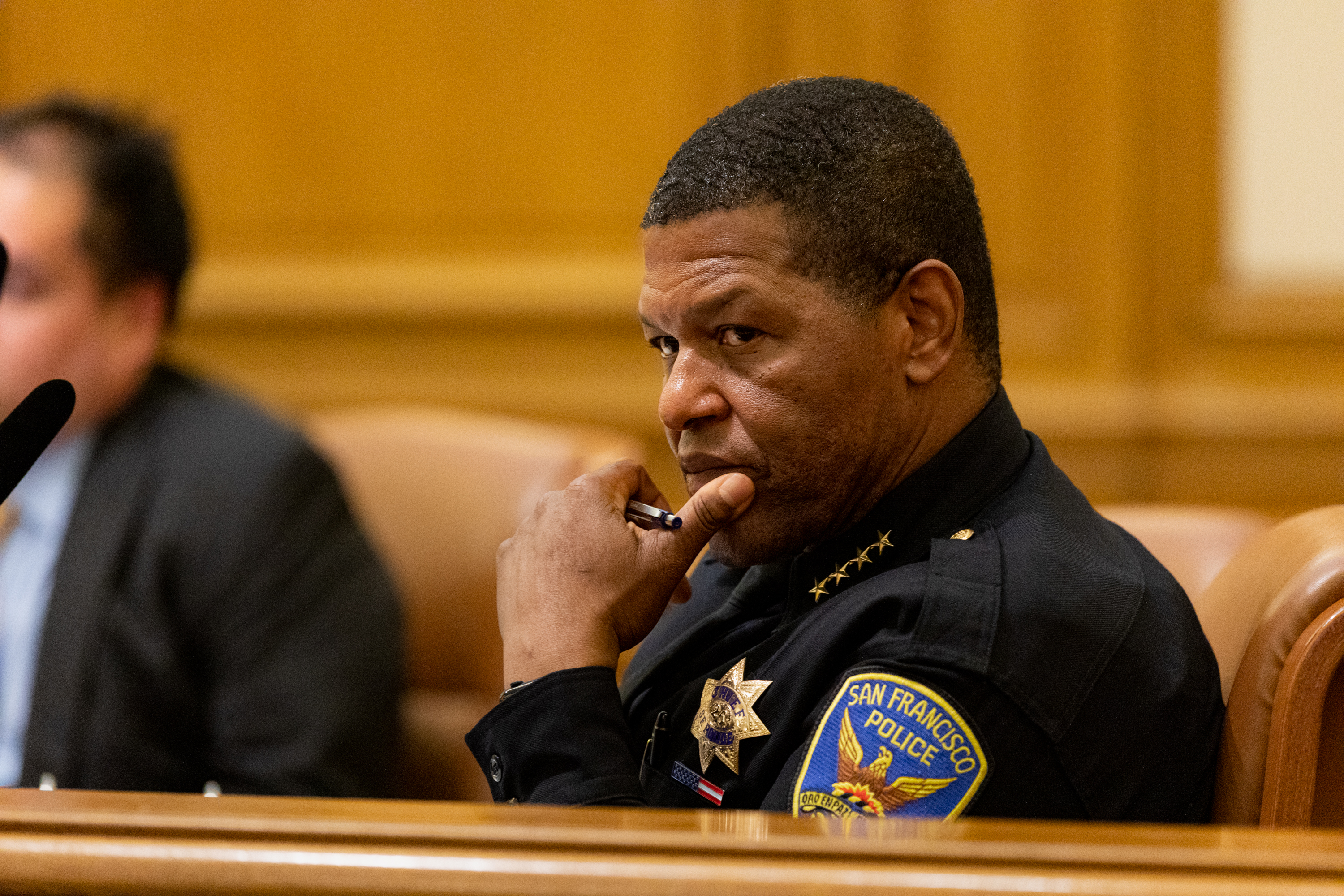In the wake of arrests of over 100 people at a skateboarding event near Dolores Park earlier this month, Board of Supervisors President Aaron Peskin said he no longer believes that police are incapable of making mass arrests of street-level drug dealers in the Tenderloin.
San Francisco police officers dressed in riot gear showed up to an annual skateboarding event on July 8, arresting 81 minors and 32 adults on suspicion of inciting a riot and other charges.
Peskin said the arrests made him realize that the San Francisco Police Department’s staffing issues should no longer be an excuse for the city to not step up its response to the visible drug dealing that plagues some Downtown neighborhoods.
“There’s this defeatist refrain, which is, ‘Well, we don’t have enough police, so we can’t do our jobs,” Peskin told The Standard. “While we certainly could have more police, that doesn’t mean that we can’t be arresting hundreds of drug dealers.”
GET THE INSIDE SCOOP: Power Play is The Standard’s insider email newsletter covering City Hall and politics. Sign up here.
Peskin in recent months has pushed for a collective plan to solve the city’s drug crisis that would involve the city’s police department working with state and national law enforcement agencies to remove dealers from the city’s streets.
The San Francisco Police Department has touted a record amount of fentanyl seized from drug dealers this year, and Gov. Gavin Newsom deployed the California Highway Patrol and the National Guard to the city in April to help break up the drug markets.
Officials opened a command center in June in an attempt to synchronize the city’s response to the drug crisis by bringing together representatives from the police department and the Department of Public Health.
Randy Shaw, executive director of the Tenderloin Housing Clinic, said the police force shown at the skateboarding Hill Bomb event has intensified his calls for more drug-dealing arrests in the Tenderloin.
Shaw said that on a recent walk around the neighborhood, he noticed more drug activity than ever before despite the increase in enforcement measures. He said he believes areas with frequent drug-dealing need to be consistently monitored by police over a long period of time to see an improvement.
“Why are they more worried about skateboarding than they are about people selling drugs that are killing people?” Shaw asked.
Aref Elgaali, the owner of Z Zoul Cafe on Eddy Street, told The Standard he would welcome more police but he believes it would do little to change the Tenderloin’s reputation.
“People will have the perception that [the] Tenderloin is unsafe even if you bring in the troops,” Elgaali said. “It’s not like the other districts: It always needs more enforcement.”
In May, the city’s law enforcement officers began arresting people under suspicion of public intoxication. Officers booked 42 people into jail between May 30 and June 18, but none accepted treatment upon release.
Peskin said he believes arresting drug users is a waste of city resources, especially without sufficient treatment options.
“It’s not effective,” Peskin said. “I mean, they go out four hours later.”
People are dying from overdoses at a record rate this year as the city is on pace to lose a historic number of lives to narcotics.
Peskin told The Standard he wants to direct more city resources to rehabilitate people who are exiting jail on drug-dealing offenses while also providing treatment for those suffering from addiction. He suggested calling on the National Guard to erect an emergency treatment center while the city works to build its own facilities.
Peskin pointed to the Tenderloin Center, which opened and closed over an 11-month span last year, as an example of the city quickly providing services to people with addiction. He said the National Guard is uniquely capable of opening another such site that provides people with drug treatment in San Francisco.
“This is an organization that has doctors at its disposal,” Peskin said. “That’s what this situation is calling for.”
